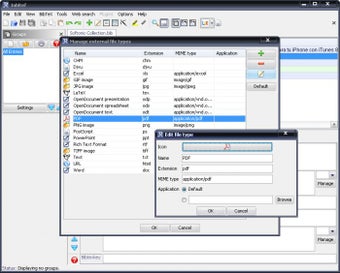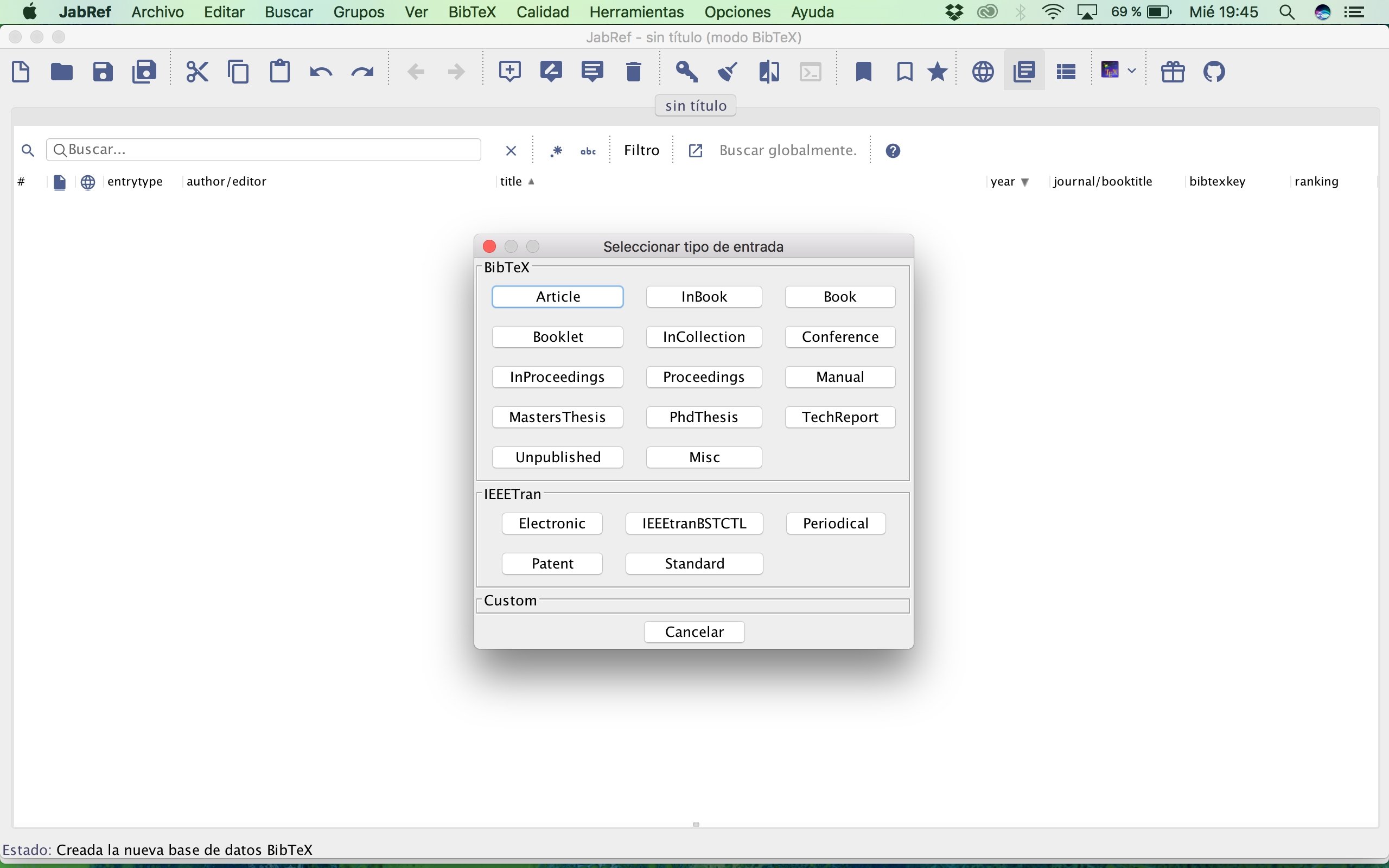

Our mission is to advance knowledge and improve scientific research.

And the great thing is we have a shared group library for our group of 20.people. And for your LaTeX documents, you had to rely on BibTeX or biblatex. ago We use Zotero and Better BibTeX for Zotero. mlep January 26, 2022, 7:47pm 1 For a while, JabRef uses Citation Style Language files to display entry previews (you can select among a very long list of citations styles in Options -> Preferences, Tab Entry Preview ).
#Bibtex vs. jabref install
It also works on the GIT console in Windows (which I'm using), but you would have to install the MINGW build of emacs separately.įor me, git commits now work elegantly and economically. JabRef was founded 2003 and has since been used by many students and researchers. bib file manager, and org-ref is just to include references in org mode files, not even useful for LaTeX. It won't touch the extra non-bibtex lines added by Mendeley, and should work on any Unix/Linux installation with emacs. That means, your BibTeX/biblatex file is kept as is when opening in JabRef and saving again: You normally load and save your libraries directly in the BibTeX/biblatex. JabRef program uses no separate internal file format but directly works with BibTeX and biblatex. Just run it (after setting file permissions if necessary) before each git commit: chmod a+x bibsort.sh JabRef is is a program for working with BibTeX and biblatex libraries. Here's the shell script (let's imaginitively call it bibsort.sh), which assumes that both the bibtex files and the lisp script are in the current directory: #!/bin/bashĮmacs -batch -l bibsort.el "$bibfile" -f bibsort jabref Graphical Java application for managing BibTeX and biblatex (.
#Bibtex vs. jabref code
I went further in writing a shell script to call it for each bibtex file which Mendeley had reordered (with or without fresh references), by checking the return code from "git diff filename" (this saves time by not running the lisp code unnecessarily on files which have not changed). You can call the script in batch mode from the command line. JabRef is an open-source, cross-platform citation and reference management tool. This sorts any bibtex file by key name and then saves it. JabRef helps you work with your BibTeX databases, but there are still rules to keep in mind when editing your entries, to ensure that your database is. Based on que que's great suggestion, I solved my issue using emacs, but in batch mode, nicely allowing me to wrap the solution in a shell script.įirst off, I created the following emacs lisp script (let's call it bibsort.el): ( defun bibsort() Location of JabRef.jar is at /home/wenqiang/Desktop/JabRef.jar, location of jabref.sh is at /home/wenqiang/apps/jabref.sh.I too have been having this problem, which is still not fixed in Mendeley. jabref.txt (64 Bytes)Ĭould you please have a look at that? Do I have done something wrong? It also supports inclusion of references in popular word processors. I uploaded my jabref.sh file, which has been renamed due to the suffix restriction. It comes with most Linux distributions and manages BibTex references quite well. And when the loading of ‘Snapshot’ and ‘Full Text PDF’ is over, the little pop-up window of JabFox will soon disappear with nothing. After all the config, JabFox can grab the information as the same as on Win7, but, there is NO window pops up in JabRef. However, when I follow the steps described for JabRef.jar. When I open a website containing the information of an article, if I click on the button of JabFox, after a while of loading, a window in JabRef will pop up for inserting the bibtex into JabRef. I think I have successfully installed JabFox on Win7. I followed the instructions in the web page of JabFox, which is given in the help page of ‘Fetching entries from Google Scholar’.


 0 kommentar(er)
0 kommentar(er)
